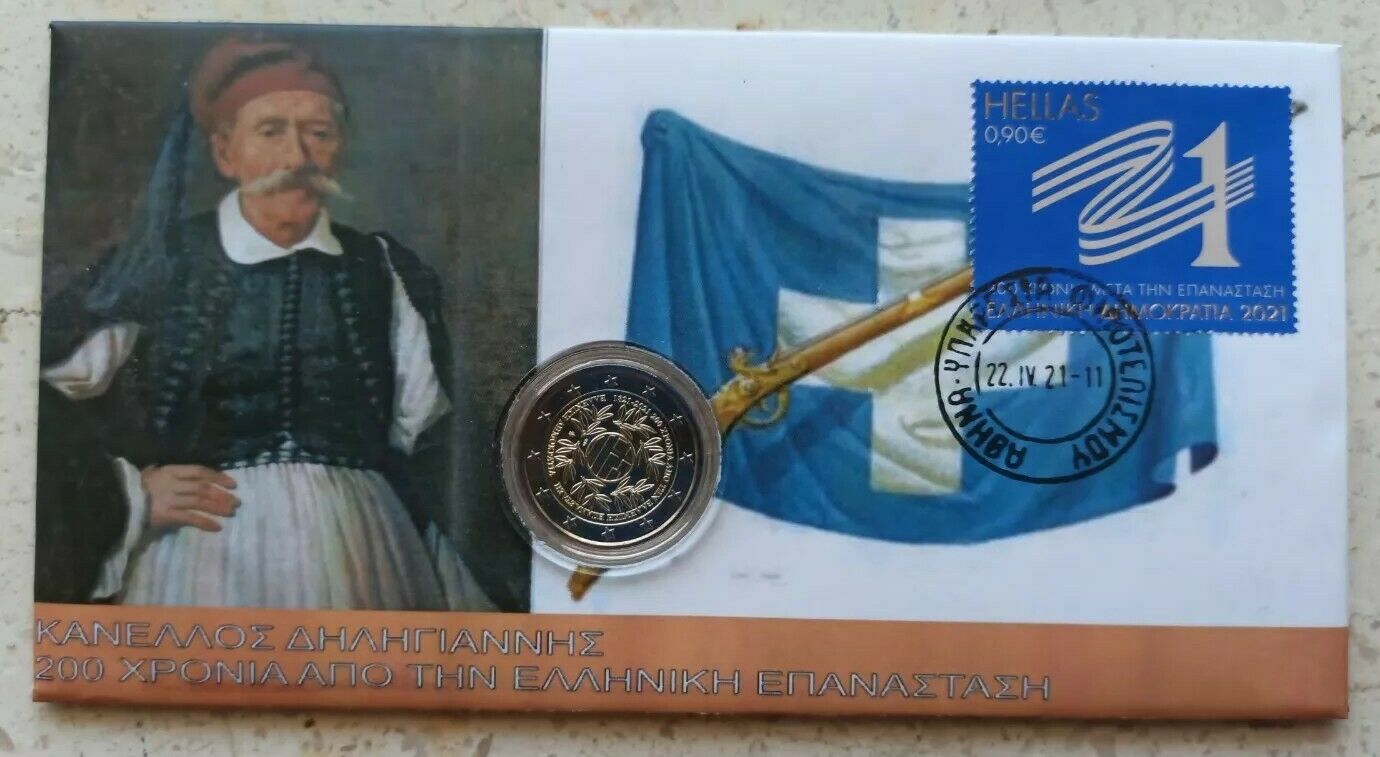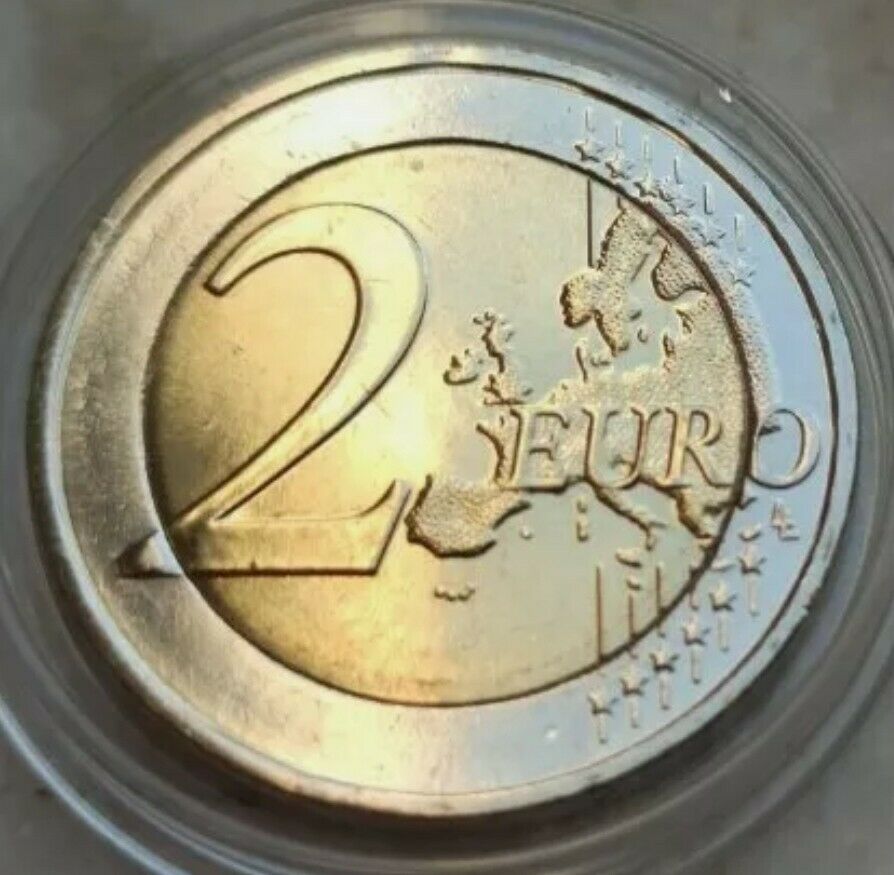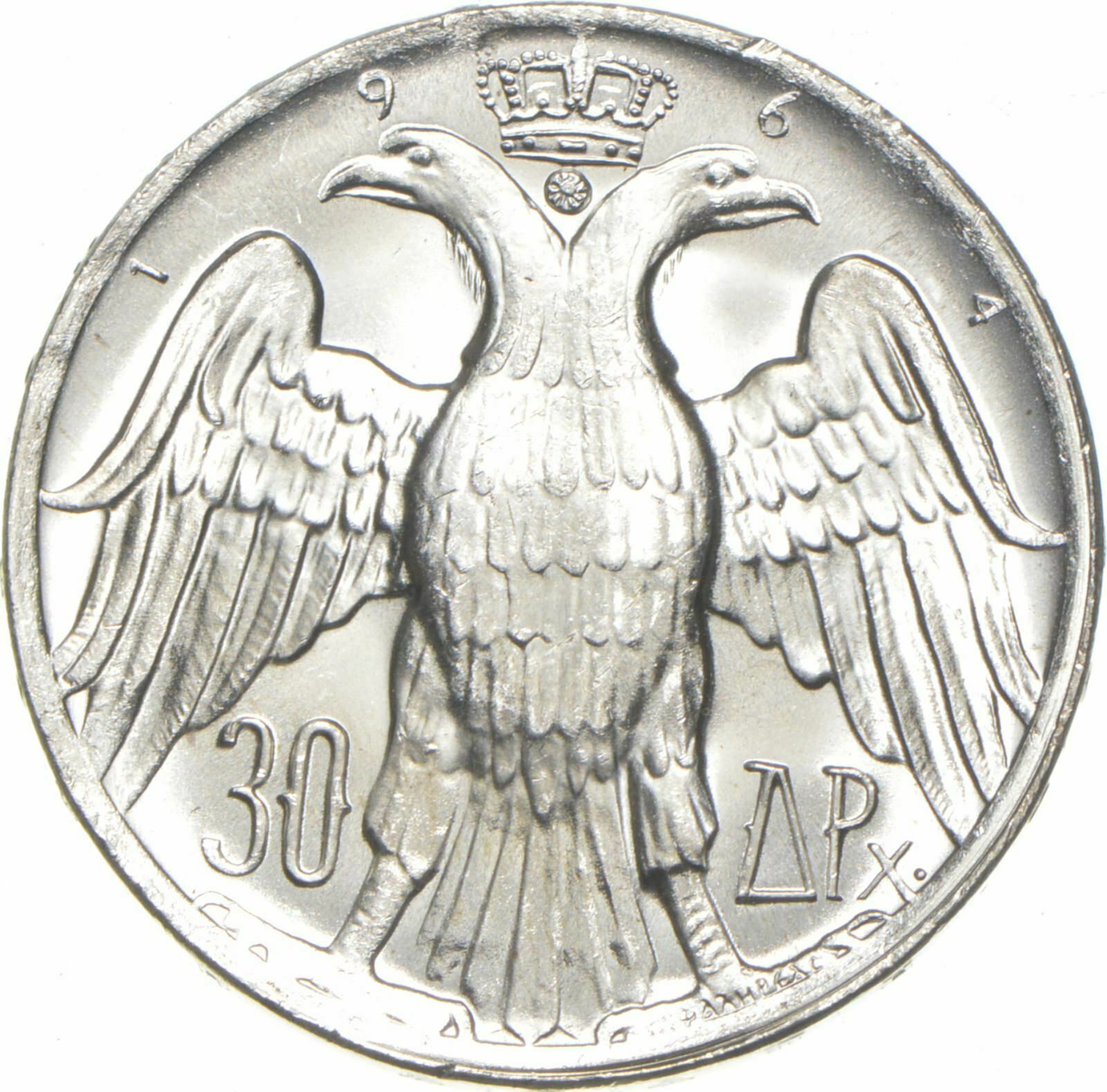-40%
KANELOS DILIGIANNIS 2 Euro ¤ģ░’ĖÅ GREECE 1821 2021 ¤ģ░’ĖÅ Grece Grecia Griechenland
$ 31.67
- Description
- Size Guide
Description
Briliand uncirculatedCommemorative in blister.
1821-2021.
200 years from the Greek revolution.
╬ō╬Ö╬æ ╬Ģ╬ø╬ø╬æ╬ö╬æ ╬ō╬Ö╬Ø╬Ģ╬ż╬æ╬Ö ╬Ü╬æ╬Ö ╬æ╬Ø╬ż╬Ö╬Ü╬æ╬Æ╬¤╬ø╬Ś ╬Ś ╬Ü╬æ╬ż╬æ╬ś╬Ģ╬Ż╬Ś/╬£╬Ģ╬ż╬æ╬”╬¤╬Ī╬æ ╬Ż╬Ģ ╬ż╬Ī╬æ╬Ā╬Ģ╬¢╬æ.
╬ĢŽĆ╬╣╬║╬┐╬╣╬ĮŽē╬Į╬«ŽāŽä╬Ą ╬│╬╣╬▒ ╬╗╬ĄŽĆŽä╬┐╬╝╬ŁŽü╬Ą╬╣╬ĄŽé.
The item on the pictures is the one that you will receive. Look carrefully and judge for your self for the quallity and the grade.
S&h is .90 for all the world.
Registered mail with international tracking number.
BID WITH CONFIDENCE. . SELLER with 100% POSITIVE FEEDBACK.
Kanellos Deligiannis
╬Ü╬▒╬Į╬Ł╬╗╬╗╬┐Žé ╬ö╬Ą╬╗╬Ę╬│╬╣╬¼╬Į╬Į╬ĘŽé
Born
1780
Gortynia
,
Ottoman Empire
Died
18 September 1862
Athens
,
Greece
Nationality
Greek
Occupation
Greek revolutionary leader, politician
Kanellos Deligiannis
(
Greek
:
╬Ü╬▒╬Į╬Ł╬╗╬╗╬┐Žé ╬ö╬Ą╬╗╬Ę╬│╬╣╬¼╬Į╬Į╬ĘŽé
; 1780ŌĆō1862) was a
Greek
magnate
from the
Morea
and the son of
Ioannis Deligiannis
. He was one of the main organizers of the
Greek War of Independence
and a politician in the independent
Kingdom of Greece
.
Biography
He was born in
Langadia
,
Gortynia
, and was a son of one of the most important magnates in the
Peloponnese
(
Morea
), Ioannis Deligiannis. Due to the prominence of his family in the area, he played an important role in the
Greek Revolution
.
He fought at
Missolonghi
,
Peta
,
Tripolitsa
, and elsewhere. During the
Greek civil wars of 1824ŌĆō1825
, he joined with many chiefs of the Peloponnese and
Hydra
and convinced
Theodoros Kolokotronis
to join them by offering his daughter in marriage to one of Kolokotronis' sons. In the second round of the civil war, he was imprisoned along with Kolokotronis by the provisional government of
Georgios Kountouriotis
. After Independence, he became a speaker of the
Greek Parliament
in 1844ŌĆō1845.
Deligiannis also wrote memoirs, which are considered controversial, as they seek to justify his father's pro-Turkish stance as being beneficial for the Greek population. His memoirs also portray the rivalries of the various groups and the leading families of the Peloponnese before and during the Revolution.
He died in 1862.
Greek War of Independence
Clockwise:
The camp of
Georgios Karaiskakis
at
Phaliro
, the burning of an Ottoman frigate by a Greek
fire ship
, the
Battle of Navarino
and
Ibrahim Pasha of Egypt
at the
Third Siege of Missolonghi
Date
21 February 1821 ŌĆō 12 September 1829
[1]
(8┬Āyears, 6┬Āmonths and 3┬Āweeks)
Location
Greece
Result
Greek independence:
Establishment of the
First Hellenic Republic
(1822ŌĆō1832)
Start of the
Russo-Turkish War (1828ŌĆō1829)
London Protocol
Treaty of Constantinople
Establishment of the
Kingdom of Greece
(1832)
Start of the
First Egyptian-Ottoman War
Territorial
changes
The
Peloponnese
,
Saronic Islands
,
Cyclades
,
Sporades
and
Continental Greece
ceded to the independent Greek state
Crete
ceded to
Egypt
Belligerents
Before 1822:
Filiki Eteria
Greek
Revolutionaries
Sacred Band (Ieros Lohos)
After 1822:
Hellenic Republic
Supported by:
United Kingdom
Romanian Revolutionaries
Russian Empire
Kingdom of France
Serb volunteers
Montenegrins volunteers
Ottoman Empire
Egypt
Algeria
Tripolitania
Tunis
Commanders and leaders
Alexandros Ypsilantis
(
Commander-in-Chief
)
Demetrios Ypsilantis
Ioannis Kapodistrias
Theodoros Kolokotronis
Alexandros Mavrokordatos
Germanos III
Petros Mavromichalis
Georgios Karaiskakis
ŌĆĀ
Athanasios Diakos
Grigorios Papaflessas
ŌĆĀ
Markos Botsaris
ŌĆĀ
Yannis Makriyannis
Nikitas Stamatelopoulos
Emmanouel Pappas
Odysseas Androutsos
Andreas Miaoulis
Constantinos Kanaris
Laskarina Bouboulina
ŌĆĀ
Richard Church
Vasos Mavrovouniotis
Had┼Ši-Prodan
ŌĆĀ
European support
:
Nicholas I
Lodewijk Heiden
Edward Codrington
Henri de Rigny
Nicolas Joseph Maison
Mahmud II
(
Commander-in-Chief
)
Nasuhzade Ali Pasha
ŌĆĀ
Omer Vrioni
Mahmud Dramali Pasha
Kara Mehmed
Hursid Pasha
ŌĆĀ
Husrev Pasha
Mustafa Pasha Bushatli
Re┼¤id Mehmed Pasha
Mehmed Selim Pasha
Egyptian support
:
Muhammad Ali Pasha
Ibrahim Pasha
Ismael Gibraltar
ŌĆĀ
The
Greek War of Independence
, also known as the
Greek Revolution
(
Greek
:
╬Ģ╬╗╬╗╬Ę╬Į╬╣╬║╬« ╬ĢŽĆ╬▒╬Į╬¼ŽāŽä╬▒Žā╬Ę
,
Elliniki Epanastasi
; referred to by
Greeks
in the 19th century as simply the ╬æ╬│ŽÄ╬Į╬▒Žé,
Agonas
, "
Struggle
";
Ottoman
: ┘Ŗ┘ł┘垦┘å ž╣žĄ┘Ŗž¦┘å┘Ŗ
Yunan ─░syan─▒
, "
Greek Uprising
"), was a successful
war of independence
waged by Greek revolutionaries against the
Ottoman Empire
between 1821 and 1830. The Greeks were later assisted by Great Britain,
France
and Russia, while the Ottomans were aided by their North African vassals, particularly the
eyalet
of
Egypt
. The war led to the formation of
modern Greece
. The revolution is celebrated by Greeks around the world as
independence day
on 25 March.
Greece came under Ottoman rule in the 15th century, in the decades before and after the
fall of Constantinople
.
[2]
During the following centuries, there were sporadic but unsuccessful
Greek uprisings
against Ottoman rule.
[3]
In 1814, a secret organization called
Filiki Eteria
(Society of Friends) was founded with the aim of liberating Greece, encouraged by the revolutionary fervor gripping Europe in that period. The Filiki Eteria planned to launch revolts in the
Peloponnese
, the
Danubian Principalities
, and
Constantinople
itself. The insurrection was planned for 25 March 1821 (on the Julian Calendar), the Orthodox Christian
Feast of the Annunciation
. However, the plans of Filiki Eteria were discovered by the Ottoman authorities, forcing the revolution to start earlier. The first revolt began on 6 March/21 February 1821 in the
Danubian Principalities
, but it was soon put down by the Ottomans. The events in the north urged the Greeks in the Peloponnese (
Morea
) into action and on 17 March 1821, the
Maniots
were first to declare war. In September 1821, the Greeks under the leadership of
Theodoros Kolokotronis
captured
Tripolitsa
. Revolts in
Crete
,
Macedonia
, and
Central Greece
broke out, but were eventually suppressed. Meanwhile, makeshift Greek fleets achieved success against the
Ottoman navy
in the
Aegean Sea
and prevented Ottoman reinforcements from arriving by sea.
Tensions soon developed among different Greek factions, leading to two consecutive civil wars. The
Ottoman Sultan
called in his vassal
Muhammad Ali of Egypt
, who agreed to send his son
Ibrahim Pasha
to Greece with an army to suppress the revolt in return for territorial gains. Ibrahim landed in the Peloponnese in February 1825 and brought most of the peninsula under Egyptian control by the end of that year. The town of
Missolonghi
fell in April 1826 after a
year-long siege
by the Turks. Despite a
failed invasion of Mani
, Athens also fell and the revolution looked all but lost.
At that point, the three Great PowersŌĆöRussia, Britain and FranceŌĆödecided to intervene, sending their naval squadrons to Greece in 1827. Following news that the combined OttomanŌĆōEgyptian fleet was going to attack the island of
Hydra
, the allied European fleets intercepted the Ottoman navy at
Navarino
. After a tense week-long standoff, the
Battle of Navarino
led to the destruction of the OttomanŌĆōEgyptian fleet and turned the tide in favor of the revolutionaries. In 1828 the Egyptian army withdrew under pressure of a
French expeditionary force
. The Ottoman garrisons in the Peloponnese surrendered, and the Greek revolutionaries proceeded to retake central Greece. Russia invaded the Ottoman Empire and forced it to accept Greek autonomy in the
Treaty of Adrianople (1829)
. After nine years of war, Greece was finally recognized as an independent state under the
London Protocol
of February 1830. Further negotiations in 1832 led to the
London Conference
and the
Treaty of Constantinople
; these defined the final borders of the new state and established
Prince Otto
of Bavaria as the first king of Greece.












